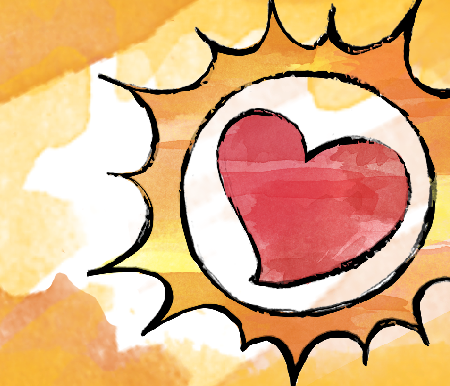When temperatures rise in the summer, so does your risk for heat-related illnesses that can take their toll on even a healthy heart.
Even more at risk is anyone with diabetes, heart failure or other heart conditions.
So, keep these things in mind when you’re looking at heat and heart health.
Dodge dehydration for your heart’s sake
Dehydration – when your body doesn’t have enough water to properly perform its necessary functions – can be a big issue for our hearts.
Why? Water is a key ingredient in our blood. The less water we have in our bodies, the less blood that’s circulating.
Our hearts respond to having less blood to pump by increasing blood pressure and heart rate, both of which aren’t healthy when sustained for more than a brief period of time.
“Severe dehydration can ultimately damage the heart muscle,” said Kelly Brandt, a nurse practitioner.
Keep your meals light
When it’s hot outside, don’t eat big meals. When you do, your stomach and digestive system pull blood from the rest of your body to help digest food.
That means your heart works harder. Add heat to the mix and you compound your risk for having a heart-related health issue, Brandt said.
Instead of a couple large meals, try eating five to six smaller meals throughout the day, Brandt said.
Medications, heat and your heart
If you take a beta blocker, calcium channel blocker or ACE inhibitor for a heart condition, you may be at increased risk of feeling the affects of heat on your ticker. These drugs can deplete your body of sodium, which then causes an exaggerated response to heat.
Also, beta blockers help the heart pump more efficiently but do so by slowing the heart beat. So, if your heart wants to pump faster to get your blood close to the skin so it can cool, the drugs make it difficult, resulting in strain on your heart.
Diuretics, which make you urinate more, can cause dehydration in heat, while some antidepressants and antihistamines can restrict sweating.
“If you’re on any of these medications, talk to your doctor before spending a significant amount of time in the heat,” Brandt said.
Heat exhaustion, heat stroke – bad news for your heart
When heat exhaustion and heat stroke strike, it’s likely your heart will feel the effects. Both cause your pulse to either weaken or race, risk factors for having a heart attack.
If you’ve been in the heat and begin to not feel well, watch for these heat exhaustion symptoms:
- Headache
- Sweating a lot
- Skin may feel cool
- Chills
- Lightheadedness
- Weak or elevated pulse
- Muscle cramps
- Shallow and fast breathing
- Nausea
Many symptoms are similar for heat stroke but your skin will feel warm and dry, you may experience confusion, lose consciousness, have a high fever, headache and the urge to vomit.
A strong and fast pulse also is a sign of heat stroke. If you experience these symptoms, call 911 or seek emergency care immediately.

